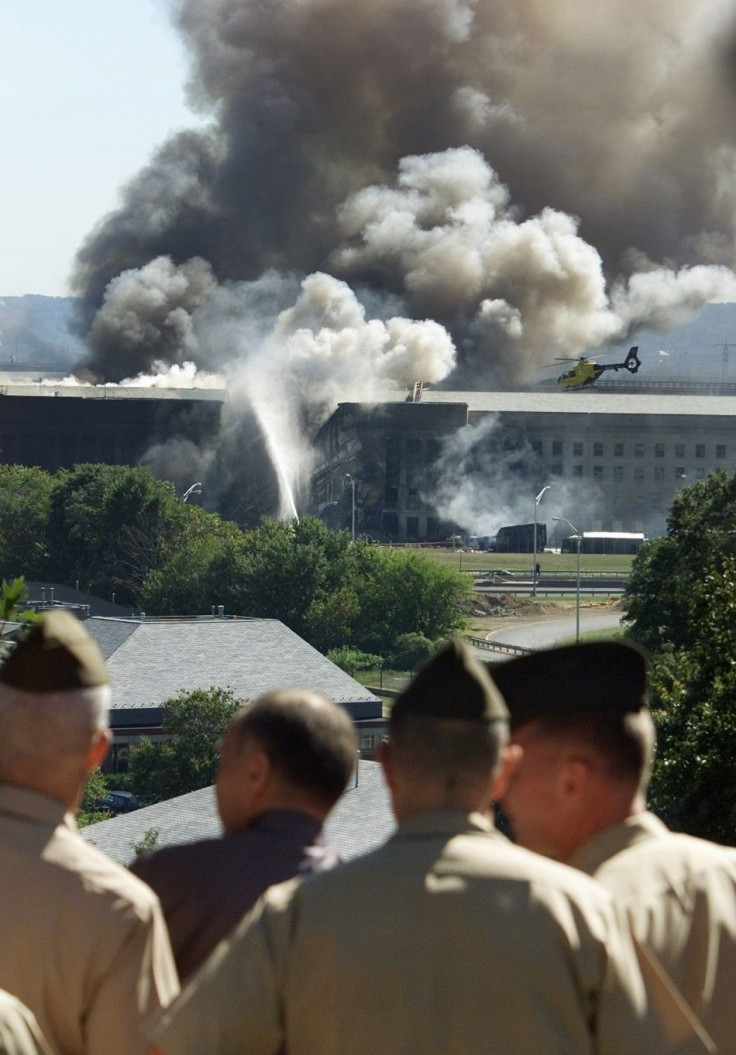Pentagon 9/11 Victim Remains Landfill Scandal: New Yorkers React

The Pentagon released a report Tuesday revealing that some 9/11 victim remains were taken to a landfill in the aftermath of the 2001 terror attack, and New Yorkers are beginning to react to the scandal.
The Defense Department acknowledged for the first time Tuesday via a panel report headed by retired general John Abizaid that small portions of unidentified human remains recovered from the sites of the 9/11 attacks at the Pentagon and in Shanksville, Pa., were taken to the Dover Air Force Base mortuary in Delaware then incinerated and taken to a Virginia landfill.
In November the Washington Post exposed the mortuary's long-held practice of disposing of incinerated remains of troops killed in the Iraq and Afghanistan wars in a Virginia landfill.
We don't think it should have happened, John Abizaid, the retired general who led the panel, told the New York Times Tuesday at the Pentagon.
The Department of Defense supplied the International Business Times with the panel's full report and a statement issued by Secretary of the Air Force Michael Donley that loosely addressed Abizaid's report and what will be done to keep such things from happening in the future.
The men and women who serve at [Air Force Mortuarty Affairs Operations] recognize what a sacred mission it is to serve our Nation's Fallen and their families, and they have been working diligently to correct the deficiencies indentified in the initial investigations and subsequent reviews, the statement reads. They will continue to do so as we implement the findings of the Defense Health Board panel.
New Yorkers are beginning to react to the new scandal, and a range of emotions is emerging as they struggle to cope with the news that their loved ones, friends and neighbors' remains may have been incinerated by the U.S. government and sent to a landfill.
Eugene Kelty, an FDNY veteran from Whitestone, N.Y., was captain of Engine 10 in the famed Tenhouse--the closest firehouse to the World Trade Center at 124 Liberty St. in downtown Manhattan--on Sept. 11, 2001. Kelty, who has been in the FDNY for 33 years, was in the Tenhouse when both towers fell, but his firefighter brother James Kelty narrowly avoided death when the towers came down.
Six Tenhouse firefighters died on 9/11 that day, and Kelty and his fellow survivors worked long days for months after the attacks, digging through rubble and marking the locations of body parts and evidence found at the site with GPS units.
As someone who was so close to the tragedy, Kelty has a uniquely personal perspective on the 9/11 victim remains scandal:
I wouldn't want to see my brother's parts being lost in the landfill over there. But I don't know what else the government or the city could have done to stop something like this, he said Tuesday. It's an unfortunate thing and it's very upsetting for people to find out that the remains of their loved ones were taken to the landfill. I lost friends and stuff and it's very upsetting. I would hope that the remains would always be kept dignified, and that's why the city had people at the landfill as a second wave checking whatever was taken off the site.
New York City Councilman Dan Halloran, of Bayside, N.Y., lost a cousin in the World Trade Center on Sept. 11, 2001, and he said he would be outraged if there were a possibility that his cousin's remains had been taken to a landfill. He said that more should have been done by the U.S. government to ensure that proper disposal practices were followed:
Hurt is the primary feeling, hurt that they weren't teated with the respect and dignity that they should have been. But I think dispapointment isn't enough because you are entitled to have the government ensure that your loved one's remains are treated with dignity, Halloran said Tuesday. In New York we had sifting done at Ground Zero for DNA and other forms of remains, and a second sift when the material was offloaded when it was delivered to the landfills. If the city of New York can go to those great lengths, one would think the United States government would be able to do so as well.
New York State Assemblywoman Grace Meng, a Queens, N.Y., Democrat representing the majority-Asian-American neighborhood of downtown Flushing, had not read the report as of Tuesday afternoon, but she said that she felt for the families of victims who must now face the fact that their family members' remains may have ended up in a Virginia landfill:
It really adds insult to a very painful situation, one that ten years later the families are still suffering from. It's horrible, it's very disrespectful, she said. It's another layer of shock for them. They're already hurting and I don't think the families have ever gotten over what happened even though it was 10 years ago, so this is probably very hard for them to take.
And Devon O'Connor, the president of the Welcome to Whitestone Commercial and Residential Civic Association in Queens, N.Y., said that just thinking about the idea of 9/11 victims' remains being taken to a landfill brings him back to that terrible day, but that he understands that the circumstances of trying to react to the terrorist attacks could lead to such missteps:
It was a crazy time, I'm sure there were a lot of people running around, scrambling and trying to find people. So I'm sure things like that had to happen, he said Tuesday. It's not something that you really have control over. I'm sure I would have a different emotion, if someone I was related to was involved with it, but in reality what else could they have done? There's really no other way to do it, I guess.
© Copyright IBTimes 2025. All rights reserved.





















